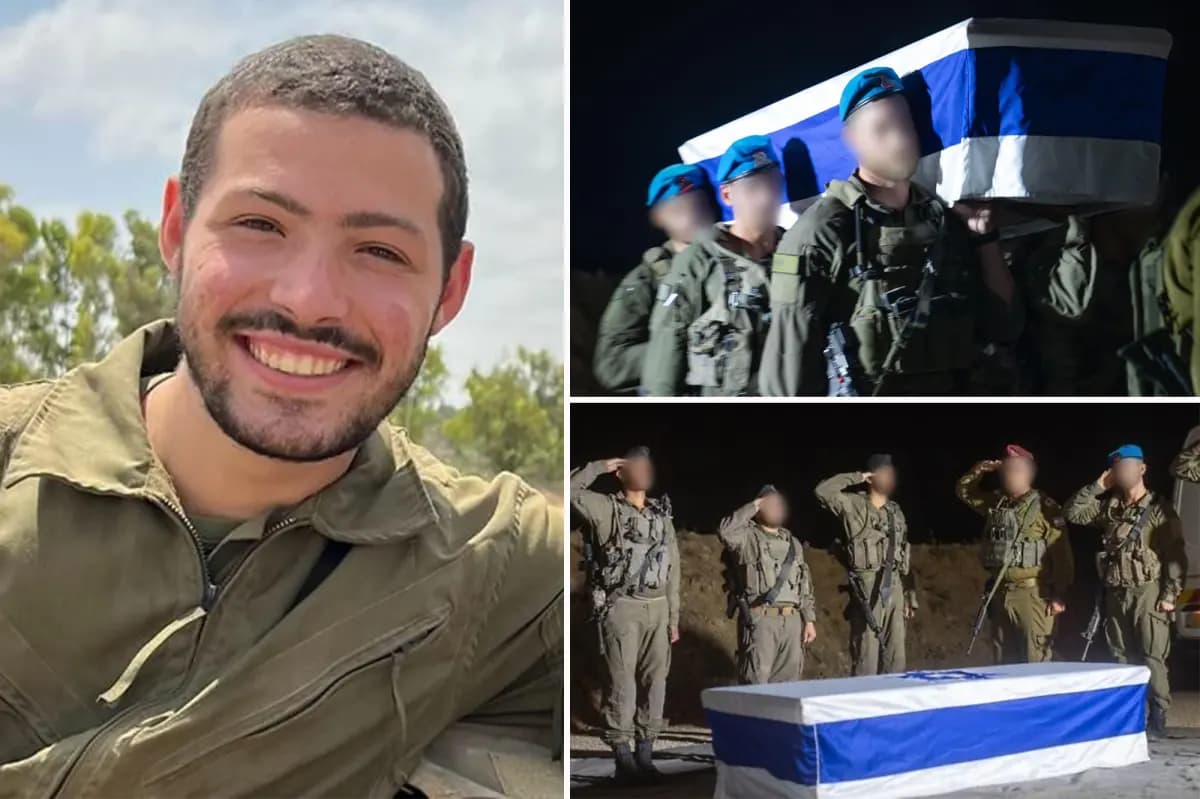We're loading the full news article for you. This includes the article content, images, author information, and related articles.
The recovery of the 19-year-old's remains from Gaza brings a painful chapter to a close for his family and highlights the ongoing, complex process of hostage body repatriation under a fragile ceasefire.

The Israel Defense Forces (IDF) on Wednesday, November 5, 2025, confirmed that the remains of Staff Sergeant Itay Chen, a 19-year-old Israeli-American soldier killed during the Hamas-led attack on October 7, 2023, have been returned to Israel. The transfer, facilitated by the International Committee of the Red Cross (ICRC), marks a significant moment for the Chen family, who had tirelessly advocated for his return for over two years.
Staff Sgt. Chen was serving in the 7th Armored Brigade’s 77th Battalion near the Gaza border when the conflict erupted. He was killed in action inside his tank during a fierce battle at Kibbutz Nir Oz, and his body was subsequently taken into Gaza by Hamas militants. For months, his family lived with the uncertainty of his fate until the IDF officially confirmed his death on March 12, 2024, based on intelligence findings.
The return of Chen’s body is a component of a broader, US-brokered ceasefire agreement that mandates Hamas to return the remains of all deceased hostages. In a statement on Tuesday, November 4, Hamas’s military wing announced they had recovered the soldier's body during excavation operations in Gaza City's eastern Shejaiya neighborhood, an area under Israeli military control. Following this, Hamas transferred the casket to the Red Cross, which acted as a neutral intermediary, escorting the remains to IDF representatives within Gaza.
Upon receiving the casket, the IDF conducted a brief military ceremony before transporting it to the National Institute of Forensic Medicine at Abu Kabir for formal identification. Following positive identification, IDF representatives notified the Chen family, bringing an end to what his family described as 760 days of “agonizing uncertainty.”
The event has drawn statements from international figures. U.S. officials expressed their condolences and relief for the family. U.S. Senator Kirsten Gillibrand of New York stated, "I am relieved that Itay's body has finally been returned to Israel, allowing his loved ones to lay him to rest with dignity." The return of Chen, who was the last remaining slain American hostage in Gaza, underscores the international dimension of the conflict and the ongoing diplomatic efforts to resolve its painful legacies.
For Kenya and the East Africa region, this development serves as a reminder of the protracted nature of the Israeli-Palestinian conflict and its profound human cost. While direct Kenyan involvement is minimal, the conflict's impact on global diplomacy, security, and humanitarian principles resonates worldwide. The role of neutral intermediaries like the Red Cross in such sensitive operations is a critical aspect of international humanitarian law, a field of significant interest to nations contributing to peacekeeping and conflict resolution missions globally.
The process of returning hostages' remains has been fraught with challenges. Hamas has cited the widespread devastation in Gaza as a significant obstacle to locating and recovering bodies buried under rubble. In exchange for each Israeli body returned, Israel has agreed to release the remains of 15 Palestinians. So far, 270 Palestinian bodies have been handed over under the current ceasefire.
With Chen’s return, the number of deceased hostages whose bodies are still held by Hamas in Gaza now stands at seven. Israeli Prime Minister Benjamin Netanyahu spoke with the Chen family, who urged him to continue efforts to bring all remaining hostages and fallen soldiers home. The successful recovery of Staff Sgt. Chen’s remains offers a measure of closure to his family but also sharpens the focus on those still awaiting the return of their loved ones, ensuring the issue remains at the forefront of any future negotiations.
Keep the conversation in one place—threads here stay linked to the story and in the forums.
Sign in to start a discussion
Start a conversation about this story and keep it linked here.
Other hot threads
E-sports and Gaming Community in Kenya
Active 9 months ago
The Role of Technology in Modern Agriculture (AgriTech)
Active 9 months ago
Popular Recreational Activities Across Counties
Active 9 months ago
Investing in Youth Sports Development Programs
Active 9 months ago